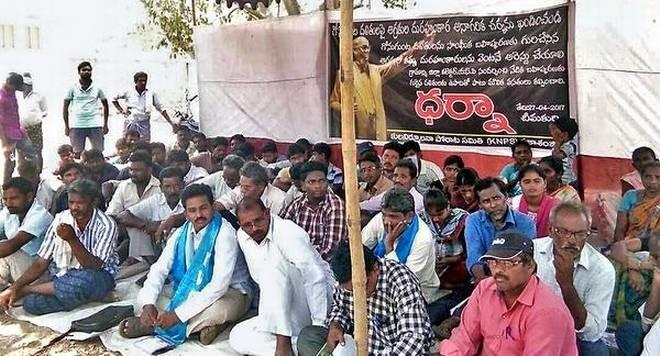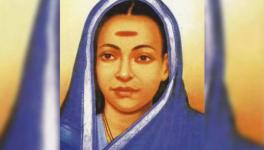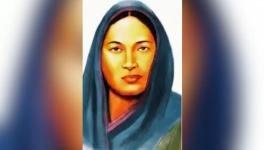In AP, Dalits Wage Everyday Struggles Against Casteism

In recent times, a series of atrocities on Dalit communities have been reported from different parts of Andhra Pradesh. With everyday forms of resistance, Dalits in the state are waging their struggle for dignity against being oppressed by upper castes and the casteist prejudices inherent in the society.
With about 85 lakh people belonging to SC category, they constitute more than 17 percent of total population in the state. There has been a sharp increase in the number of crime incidents in Andhra Pradesh after the state was bifurcated from the erstwhile Andhra Pradesh in 2014. In 2016, with 2,335 crime incidents officially registered against persons of Schedule Caste communities, the state ranked 7th in terms of crime rate in the category, according to NCRB data. This amounts to 5.7 percent of total crimes against SC in the country in the same year.
This disillusioning trend continued into 2017. Nearly 1,200 Dalits in Garagaparru village of the West Godavari district had been socially boycotted for more than a month. And it all started after a dispute on April 23, over the installation of a Dr B.R. Ambedkar statue in the village. In another incident, Dalits in the Devarapalli village of Prakasam District had to wage a struggle against the state government when the land under their ownership was allocated for a government project without proper consent from them.
While atrocities against Dalits are being reported from one or another part of the state, persons from the community are organizing among themselves and are waging collective struggles against oppression.
On the eve of new year, a group of Dalit youth was severely beaten in an attack by upper caste men over an earlier dispute in Gottipadu village, Guntur district. Members of Dalit organisations and left parties protested in front of the district collectorate, demanding the police to book the accused persons under SC/ST atrocities act. However, the Police resorted to a compromise between the victims and upper castes.
In another instance, 14 Dalit families were socially boycotted in Nagaladinne village, Kurnool district in the first week of the year. When two Dalit men, Pullanna and Elisha, who made their living by digging pits in the village’s graveyard, refused to do so because of falling ill on December 30, enraged upper caste men announced a social boycott of Dalits in the village. They also allegedly levied Rs 5,000 fine on villagers who interacted with any person from the Dalit community. Along with this, a water supply pipeline to the colony, where members of SC community reside, was broken by the dominant caste men. After a series of protests by Dalit leaders and groups, District police authorities interfered to settle the issue and cases were registered accordingly.
Representatives of Dalit organisations claim that the casteist forces have become stronger after Telugu Desam Party came to power in the state.
The scenario is similar across the country with an increase in atrocities and crimes against the marginalised sections of people including the Dalits. In 2016 alone, as many as 40,801 cases of crimes against Scheduled Caste persons were officially registered, said the NCRB data.
Get the latest reports & analysis with people's perspective on Protests, movements & deep analytical videos, discussions of the current affairs in your Telegram app. Subscribe to NewsClick's Telegram channel & get Real-Time updates on stories, as they get published on our website.
























